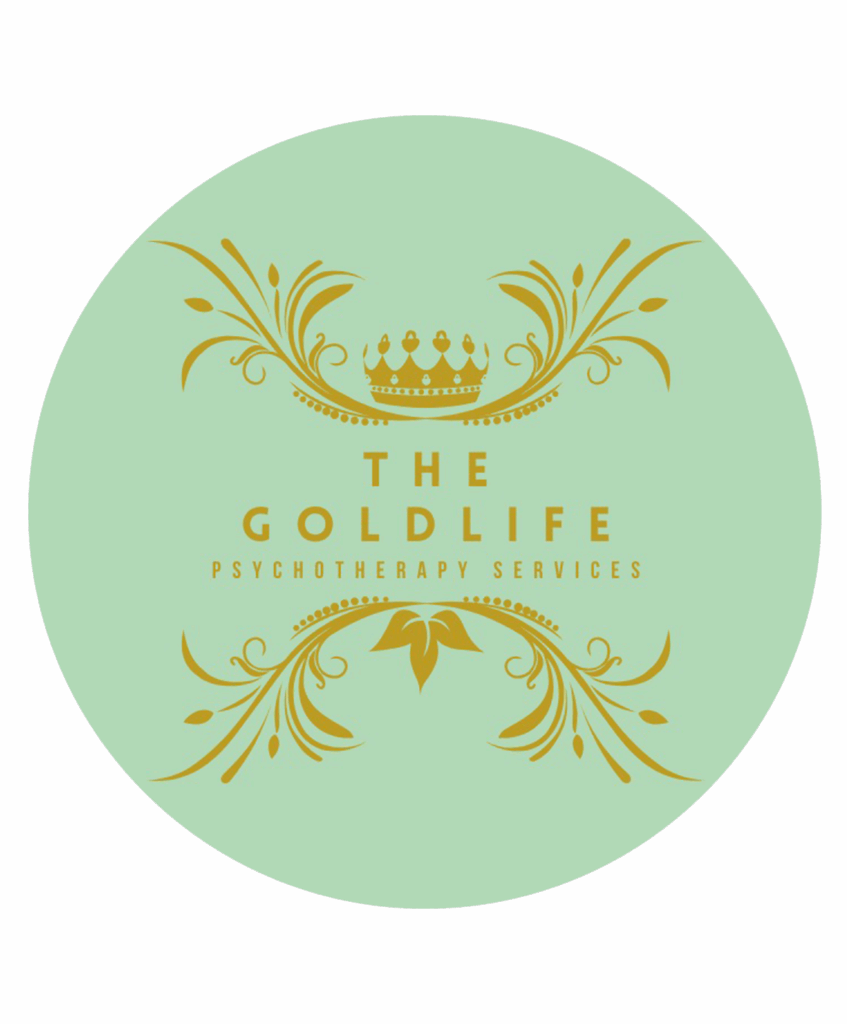How Kids grow from seeking permission to questioning authority—and how Parents can grow with them.
“Knock knock…” Meera tries to ignore it.
“Knock knock knock…” she calls, “I’ll be out in a minute, baby.”
“Bang bang!” she groans. “Are you serious? What’s the matter now?”
“Mama?” Palak’s small voice whispers desperately. Meera opens the door slightly, neck craned, trying to stay patient.
“Baby, I’m in the shower. I’ll be out soon, I promise. But I need just ten minutes for myself. Is that too much to ask?”
Six years old Palak stares blankly, unsure whether she can continue saying what she intends to.
“Mama, may I please have another chocolate?”
“Oh! Well…” Meera starts, but Palak continues:
“I know I had one chocolate after breakfast, but I promise I won’t have another for the rest of the week. Just this one small chocolate…please, please, please?”
“Ok, ok…fine, just this once. Now go,” Meera relents.
Door thuds.
As she turns back to her shower, she thinks: I wouldn’t have even known if she’d taken the chocolate. There’s a whole packet in the cupboard—she could have had it anyway. If I were in her shoes (not literally), I would have made the most of that freedom—not just with the chocolate, but sneaking into my boss’s drawer to check my performance report, or grabbing a few extra minutes to lounge while no one’s looking or something I have always done in the past …check her daddy’s phone!
But why didn’t she? Oh… right. Of course. Because she’s a child. Children ASK. It’s just the way they operate.
And then she thinks about all the little ways children ask:
- May I go to the toilet?
- May I open my socks?
- May I drink water?
- May I borrow a pencil from my friend?
- May I play in the muddy puddle?
- May I touch the dog?
- May I stain my shirt with a sketch pen?
- May I dose off?
And the list goes on even as she steps out feeling all fresh and rejuvenated!

Children ask because it’s their only way of exploring this new, exciting world—through the eyes of their beloved Mama and Papa.
Kids want to ask about everything. Yes, they really do. They don’t know any other way. From the moment a child is born, parents are the ultimate authority—especially in matters directly affecting the child. The parent seems to know best because, well, the child is their creation. Childhood logic: your word is my guide. The child doesn’t even consider questioning; the parent tells, and the child listens. That’s the unspoken rule.
In the early years, this often means the mother deciding what the child eats, wears, touches, or experiences: “Yellow looks nice on you,” she says, “freshly squeezed orange juice is better than the packaged one darling.” Thus, “mama, MAY I?” is the only way to feel like you’re a part of the game.
As the child continues to grow, so do two critical aspects of her mind: logical thinking and emotional understanding which are more like complementary partners rather than distinct entities.
Between ages 7 and 11, children enter Piaget’s Concrete Operational Stage. Their thinking becomes more logical and concrete, while empathy and social understanding deepen. Neurological growth in the frontal and temporal lobes supports both cognitive and emotional development.
With this, comes another big change: choice. The world suddenly offers options, and the child wants to explore them: milk vs. milkshake, rice vs. bread, pink vs. blue, Peppa Pig vs. Ben & Holly. Who decides? Of course… Mom or dad. And so, begins a brand-new phase of “CAN I?”
Another jewel in Mom’s diadem, is it?
The parent remains the authority, but the child is starting to assert a voice in her preferences. She offers choices to contribute to her own sense of agency:
- “Mama, can I please wear the yellow dress today?”
- “I know chocolates aren’t good for me, but I’d like one. Can I, please?”
It’s not rebellion—it’s the child learning to navigate desires, rules, and authority. It’s the start of independence, balanced by respect.
The parent—just another human being—may never have experienced this kind of authority before.
“Who has ever asked me? Really WHO? What they should or shouldn’t do? Here I am, someone so important and powerful in the eyes of this little human being. And let’s not even get started about the adorable smile and puppy eyes? Bonus perks. Yahoo!!!”
“Well, whether you like it or not, I have arrived. Someone in this world finally sees me for who I am. Not only am I important, but I’m also valuable, intelligent… I am a “Parent.” Thank you, little one. No wonder I love you so much, baby. Only you could value me this way.”
Over time, this new role becomes familiar. Day in and day out, the parent navigates simple and tricky questions, issuing commands with ease. Sometimes these commands even turn into mini-sermons: “Sit here. I’m in the mood to put some words of wisdom in your little head.” The child, of course, draws immense meaning from such experiences. (pun intended)

If you’ve made it this far in my article, you may already have an inkling of where we’re headed next. This is the phase where the “tragedy” (if we can call it that) begins—not in the literal sense, of course, but the point at which some parents start wondering: “Why doesn’t my child seek my permission anymore?” or “Why doesn’t my child agree with me anymore?”
For much of childhood, parents are the unquestioned authority. What they say is accepted, followed, and rarely challenged. But as children grow, the familiar “Okay, Mom” or “Yes, Dad” starts turning into “But why?” or “I don’t agree.”
This shift usually appears around 11–12 years old, when children enter what Piaget called the Formal Operational Stage. Until then—during the Concrete Operational Stage (7–11 years)—children think more logically, but mostly about things they can see and touch. Rules feel solid, and parental decisions seem absolute.
As children enter the Formal Operational Stage, their thinking becomes more abstract. They no longer just accept rules because they are told; they start to weigh, compare, and question. The simple “Can I?” evolves into “Why must I?” and “Why can’t I?”
This is when your child’s choices are no longer just about small preferences—they start exploring values, fairness, and independence. Milk or milkshake turns into bigger questions: Why do I have to follow this rule? Why can’t I stay up later? Why do I need to do this chore?
Adolescence changes that. With the ability to think abstractly, children suddenly see possibilities beyond what’s in front of them. They start to consider fairness, alternatives, and even contradictions. This is why your once-compliant child might begin questioning curfews, debating values, or wanting a stronger voice in family decisions.
Psychologist Erik Erikson described this period as the stage of Identity vs. Role Confusion. Young people are not just testing boundaries for the sake of it—they’re exploring who they are and how much control they have over their own lives.
For parents, this can feel like a sudden challenge to authority. The child who once sought permission for every little thing is now testing boundaries, asserting opinions, and sometimes openly disagreeing.
Many parents find this stage uncomfortable—not because their child is “going wrong,” but because the family dynamic is shifting. The earlier “yes, Mom” or “okay, Dad” years can feel flattering. They reinforce a sense of authority and, at times, feed into an inflated ego. When children start questioning or pushing back, it’s easy for parents to feel their status is being threatened.
The truth is, the pushback isn’t about disrespect—it’s about growth. Adolescents are wired to test, question, and develop independence. What feels like rebellion is actually practice for adulthood. Parents who cling to authority alone often end up in power struggles, while those who adapt—shifting from commander to guide—help their children navigate this stage with confidence and connection.
Though it feels like the rebellion streak, it’s not rebellion for the sake of rebellion—it’s the natural unfolding of independent thinking. And it’s growth. Questioning authority is a sign your child is learning to reason, to weigh options, and to prepare for independence.
The challenge is not to shut down the questions, but to guide them through respectful dialogue—so they learn to think for themselves without losing connection to you.
At this stage, the way parents respond matters more than ever. Rules alone don’t teach respect; modelling, dialogue, and guidance shape how adolescents learn to make choices responsibly while still valuing family connection.

So, here we are! It all began with a small knock at the bathroom door, and we didn’t realise when we became entangled in Meera’s musings about “why ask when you can” and the naiveté with which we are sent to this world by God.
Additionally, we were able to somehow cover “The Asking Process in Three Stages” wherein we discussed that as children grow, their relationship with authority evolves in three recognizable phases:
1. “May I?”
This is the earliest stage, usually around ages 7–11, during the Concrete Operational Stage. The child still sees the parent as the ultimate authority and asks permission for almost everything:
- “Mama, may I go to the washroom?”
- “May I have another chocolate?”
- “May I play with my friend?”
It’s polite, tentative, and rooted in trust. The child is learning boundaries while testing small choices under parental guidance.
2. “Can I?”
As children enter early adolescence, roughly ages 11–13, they start experimenting with options and minor autonomy. The questions shift from seeking permission to negotiating desires:
- “Can I sleep late tonight?”
- “Can I skip my homework this once?”
- “Can I go out with friends?”
Here, the child still respects authority but begins weighing possibilities and testing limits, blending logical thinking with personal preference.
3. “Why must I?”
By adolescence, around 13+, children enter the Formal Operational Stage, where abstract thinking emerges. They no longer accept rules at face value:
- “Why must I go to bed so early?”
- “Why can’t I choose what to eat?”
- “Why do I have to follow this rule when it doesn’t make sense?”
This is when questioning authority can feel like rebellion. But it’s not defiance for its own sake—it’s the child exploring fairness, independence, and identity, testing ideas, and negotiating their place in the world.
The third stage being most crucial from a parent’s standpoint, it is important to reflect on “Why Parents Struggle—And How They Can Respond Differently”
When children begin questioning decisions, parents often react in one of three ways:
1. The Clampdown
Reaction: Parents double down on authority— “Because I said so.”
Consequence: The child learns to either obey resentfully or rebel harder.
Healthier Alternative: Shift the tone. Explain the “why” behind rules, and invite their perspective. It shows respect without giving up boundaries.
2. The Ego Hurt
Reaction: Parents take questioning personally, as if respect is gone.
Consequence: Every disagreement feels like a battle for status.
Healthier Alternative: Remember it’s not about you—it’s about their growth. Frame questions as curiosity, not disobedience. Stay calm and model respectful discussion.
3. The Withdrawal
Reaction: Some parents pull away emotionally, thinking, “If you don’t listen, figure it out yourself.”
Consequence: The child may feel unsupported, driving them to seek guidance elsewhere.
Healthier Alternative: Stay present, even if you’re challenged. Your steady presence teaches them how to debate without destroying relationships.
Children moving into adolescence don’t need parents to surrender authority, but they do need them to adapt. The role evolves—from being the one who decides for them, to being the one who helps them learn how to decide.
Children Learn More from What You Do Than What You Say
Adolescence is a stage of questioning, and it highlights a timeless truth: children absorb actions far more than words. You can set rules and give advice, but if your behaviour contradicts your guidance, the message loses power.
For example, a parent might insist, “You must sleep by 8 PM; it’s healthy,” yet stay up all night themselves. The child notices. The result? They’re less likely to follow the rule—and may even lose respect for the parent’s authority.
Modelling the habits and behaviours you wish to instil isn’t just about consistency—it’s about credibility. When children see parents living the values they teach, lessons stick naturally, and respect grows alongside independence.
We can guide Without Losing Authority. Adolescence doesn’t mean giving up control. It’s about shifting your role from commander to guide.
- Provide clear boundaries while allowing room for questioning.
- Model the behaviours and values you expect.
- Stay connected, even when challenged.
By responding thoughtfully and modelling the way, parents can navigate this stage successfully, fostering respect, independence, and stronger relationships.
The Key: Steer clear of dissonance.
The Long-Term Impact of Dissonance
When children grow up in dissonance—where words and actions don’t align, or authority feels rigid rather than guiding—they don’t just leave home physically. They may also drift emotionally, creating distance from their parents’ hearts. Over time, the bond can weaken, leaving both parent and child longing for connection that could have been nurtured.
Closing Thoughts
The adolescent years are a test of patience, understanding, and self-reflection—for both parent and child. While questioning and independence can feel challenging, they are signs of growth and curiosity. By modelling consistency, staying present, and guiding rather than controlling, parents can strengthen the bond rather than weaken it.
When a parent acts and guides from a place of honesty, deep understanding, experience, wisdom, and love—tempered with uneasiness, mutual trust, respect, and a non-judgmental attitude—rebellion loses its power. No matter the age, a child senses authenticity and care. Rules, guidance, and even boundaries, when offered with this depth, are not met with defiance but with understanding, curiosity, and cooperation. True authority comes not from control, but from presence, empathy, and the unwavering knowledge that the parent’s intentions are rooted in the child’s growth and well-being.
Even if you feel the years have slipped by, the bond has thinned, or the distance seems beyond repair—it’s never too late to reconnect. Children, no matter their age, are wired to long for love, trust, and understanding from their parents. There is nothing quite like the parent-child relationship. It is unique, sacred, and intentionally designed by God to teach, nurture, and shape both lives. This bond carries the potential for guidance, trust, and unconditional love—no other relationship mirrors it in depth, impact, or meaning. Therefore, even a single tiny step, taken with honesty and openness can begin to rebuild what feels lost.




